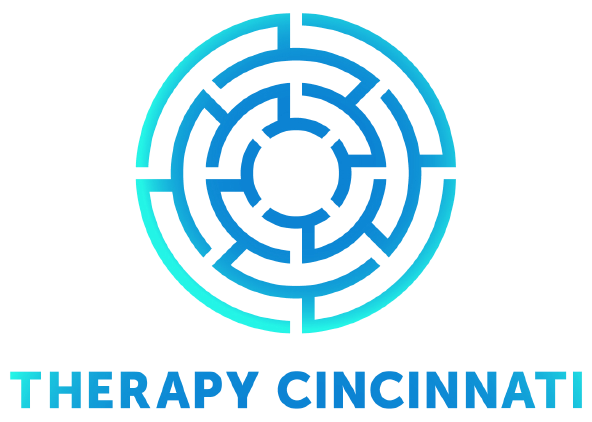Everyone has an Attachment Style. People with a Secure Attachment Style generally find security and fulfillment in their relationships. Someone with an Insecure Attachment Style may experience tremendous anxiety in their relationships, or they might even avoid relationships all together.
Your Attachment Style is most often formed from your first human bond. Those who had a positive connection with their primary care giver as an infant typically will develop a Secure Attachment Style, but if your first human connection involved abandonment, fear, trauma, abuse, or severe neglect, an Insecure Attachment Style likely developed. The quality of the first attachment you ever experienced is often what lays the foundation for all your future attachments.
Complex PTSD Attachment Style
Because an Insecure Attachment Style can be the result of a traumatic relationship, it is possible for someone with an Insecure Attachment Style to also have Complex PTSD. Complex PTSD is trauma from something that repeatedly occurred or else happened over a long period of time. If you at any point in your life were in an unhealthy relationship where continuous trauma was experienced, you may have Complex PTSD Attachment Style.
If you find yourself avoiding commitment, intimacy, or deep connections, or else if your relationships cause you intense anxiety and distress, you may have Complex PTSD Attachment Style.
Recovery from Complex PTSD Attachment Style is Possible
Coping with Complex PTSD Attachment Style can feel overwhelming and isolating, but the good news is that you can heal from Complex PTSD and develop a Secure Attachment Style. Supportive and loving connections with others can be very therapeutic. Engaging in healthy relationships with people who have a Secure Attachment Style can help you overcome the pain and damage caused from past traumatic relationships. Fortunately, secure relationships come in many forms such as with friends, family, romantic connections, and therapists. By finding healthy ways to have meaningful interactions with trustworthy and secure people, you can your broken bond and feel whole and secure again.
Reflect – Making Sense of the Past will Inspire a Better Future
The first step to recovery involves deep reflection of your past. Processing through the root cause of your Complex PTSD and identifying the “why” behind your Attachment Style can be upsetting at first, but with the support and guidance of a compassionate therapist you can obtain the clarity you need in a safe place. By facing the impact of your past relationship trauma and understanding how it influenced you, you can break free from unhealthy, Complex PTSD-influenced habit patterns.
You can break free from the cycle of trauma to ensure that what happened to you does not ever happen to you again. As you reconcile with your past, you will gain valuable self-awareness which will impact your future relationships in a positive way. For those who have struggled to find peace and security in their relationships, recovering from Complex PTSD Attachment Style is life changing and empowering.
Incorporate – Rewiring and Healing Your Mind
When we are traumatized, our brains react with a fight or flight response to adapt to the situation. In the moment of trauma, this adaptation likely saved your life. However, people who have Complex PTSD may end up becoming stuck in fight or flight mode. Navigating life and relationships through a traumatized mindset is exhausting and painful and will not help you build the secure attachments you crave.
There is hope. What happened to you was not your fault, and you deserve to heal. With support, it is possible to create new neural pathways so that your nervous system can process triggering moments without causing you unnecessary panic or anxiety. By reprogramming your nervous system and adopting new thought patterns, you can make the shift from Complex PTSD Attachment style to Secure Attachment style.
Connect – Recover Through Secure Connection
Our ability to form healthy bonds and Secure Attachments can be both disrupted and repaired by relationships. In other words, relationships can be both the cause and the answer. Unhealthy relationships can leave you traumatized, but through healthy relationships you can experience healing and develop a Secure Attachment Style. To build healthy and secure attachments, you must first cultivate an emotional resilience in an environment where you feel safe.
By experiencing healthy interactions in safe environments with reliable people, you will develop the capacity to express yourself authentically with others in your life. Through the supportive bonds of healthy friendships, romantic relationships, and/or therapeutic interactions you can achieve secure and healing connections. Overcoming Complex PTSD Attachment Style is a process that requires patience and committing to therapy is a great place to start. Therapeutic connections can help you develop past the narrative that caused your Complex PTSD and put you on the path of recovery.
Healing and Recovery from Complex PTSD Attachment Style is Possible and Worth the Effort.
Recovery requires time, space, and compassion. Our highly trained and certified trauma experts are ready to work with you. Through supportive, healing, and appropriate interactions, we will help you identify the triggers and perspectives that influence your reactions and teach you grounding techniques to help you develop security in your relationships with others.
If you are someone with Complex PTSD who struggles with an Insecure Attachment, know that there is hope. You are not your complex PTSD or your attachment style. What happened to you compromised the way you form attachments, and this was not your fault at all. You are not what happened to you, and finding security in meaningful and safe relationships where your needs are valued and cared for is possible.
We hope that you decide to move forward and find peace. At Therapy Cincinnati we believe you deserve to feel safe, worthy, and supported in your relationships. If you would like the support of qualified, compassionate, and trauma-informed licensed therapist on your journey towards healing, please contact us for a free 15-minute consultation.

